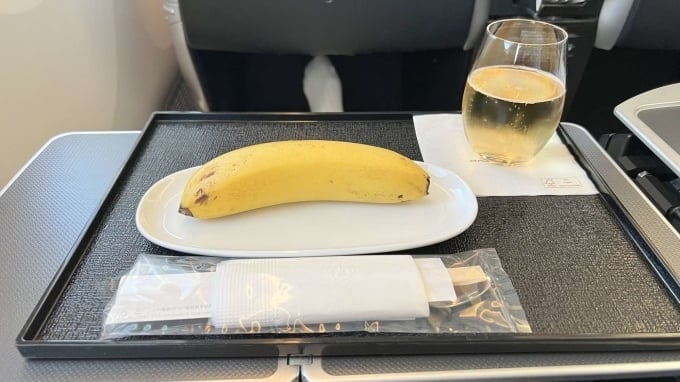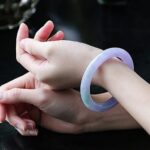Why Do Flight Attendants Often Bring Bananas on Flights?
Working at high altitudes, flight attendants constantly face low oxygen levels and pressure. With irregular flight schedules, their biological clocks are disrupted, severely affecting their health. They often experience issues like headaches, dizziness, insomnia, and fatigue. A tight flight schedule also leaves them with limited rest.
In such a challenging environment, proper nutrition is essential, and bananas offer a host of benefits. With unpredictable flight schedules, flight attendants’ eating habits can be erratic, leading to stomach and intestinal problems. Bananas stimulate the growth of gastric mucosal cells, creating a protective layer that prevents stomach acid from causing damage, thus preventing pain and ulcers.

Flight attendants working at high altitudes face low oxygen levels and pressure.
Additionally, bananas contain a type of cellulose called pectin, which maintains moisture in the intestines, aids digestion, and relieves constipation. At high altitudes, reduced pressure can impact blood pressure, but the potassium in bananas helps regulate it by removing excess sodium, also preventing cardiovascular diseases.
Bananas also improve vision, crucial for flight attendants. They are an energy-rich food that satiates for longer, strengthens bones and teeth, and reduces the risk of cancer and other illnesses.

Bananas help improve vision, an important factor for flight attendants.
However, experts advise eating only one to two bananas per day. Excessive consumption can lead to headaches, tooth decay, nausea, slow heart rate, and nerve damage.
No matter how beneficial a food is, moderation is key, as overconsumption can have adverse effects.
Mandatory Rules for Flight Attendants
Standard Watch Policy
All crew members, including flight attendants and pilots, must wear watches that adhere to specific size and design regulations. Watches not only help them stay on schedule but also play a vital role in emergencies, accident reporting, and filing flight reports in case of incidents.
Punctuality is Key
Flight times are strictly adhered to, and crew member punctuality is essential. The plane will not wait for any latecomers. If a crew member misses the pre-flight briefing, management will immediately select a replacement from the standby list. Being late more than three times can lead to termination of the contract with the airline.
Limited Jewelry
Airlines usually have restrictions on the jewelry flight attendants can wear. Oversized accessories may hinder the use of in-flight equipment, compromising safety. Attendants are typically allowed to wear only one ring and a small pair of earrings, such as pearl or diamond studs. Other jewelry, like bracelets and necklaces, are prohibited, and accessories must complement the uniform.
No Refusal of Assigned Flights
Crew members cannot refuse assigned flights, regardless of the schedule or destination. While some airlines allow swaps or requests for specific destinations, this is not always accommodated.
No Black Nail Polish
Flight attendants must maintain clean, well-groomed nails. Nails should not extend beyond 0.32 cm from the fingertip, and black nail polish or long artificial nails are not permitted, as they may interfere with their work.
Hair Must Be Tied Back
Pulling their hair back gives flight attendants a neat, professional appearance, making a good impression on passengers and preventing hair from getting in the way during work.
No Strong Perfumes
Flight attendants should be cautious when choosing perfumes. In the confined space of an aircraft, strong fragrances can be unpleasant for passengers and colleagues. They are often encouraged to opt for light, fresh scents or forgo perfume altogether to maintain a neutral scent.
Weight Maintenance
Crew members are not allowed to gain excessive weight. Once issued a uniform, they will not receive a new one if they gain weight. Some airlines in the Middle East and Asia have strict weight gain policies and may terminate employees who do not comply.
Confidentiality
Crew members typically sign confidentiality agreements, refraining from speaking about the airline, events, or taking photographs while in uniform without permission. While some regulations have been relaxed, seeking approval from the airline is often necessary.





































